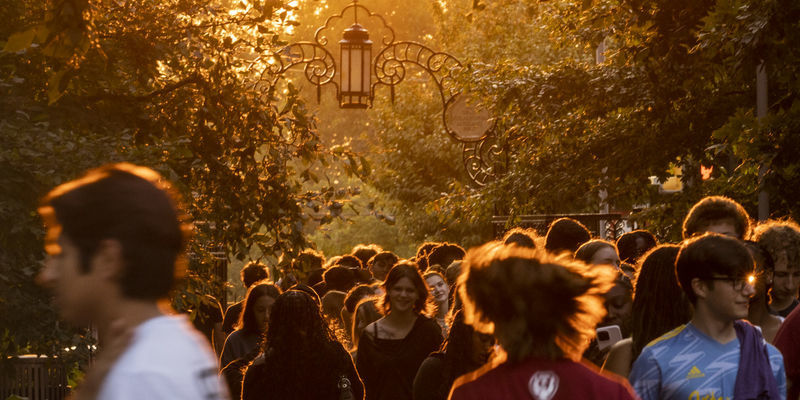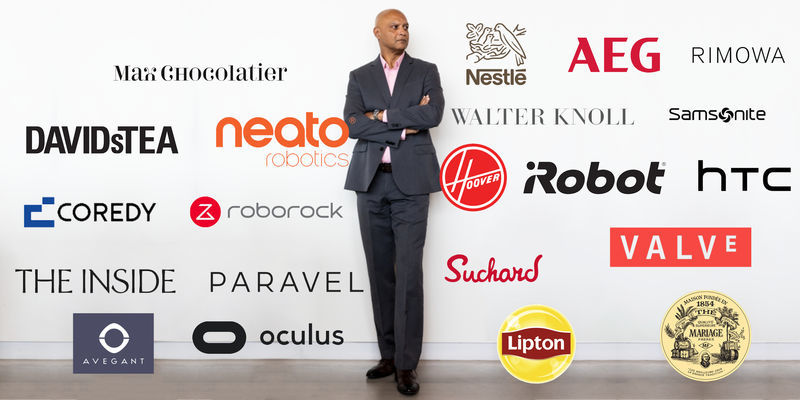Can Netflix handle live event buffering issues ahead of NFL Christmas Day games?
Many viewers found the Netflix app freezing or crashing during recent live events like the Love is Blind season 4 reunion special and the Jake Paul vs. Mike Tyson fight. Here Temple faculty member Geoffrey Baym offers his perspective.

Netflix has become the world’s biggest streaming service, but why hasn’t it mastered streaming high-volume live events?
During the Jake Paul vs. Mike Tyson boxing fight on Netflix on Nov. 15, which reached around 60 million households, thousands of subscribers were met with buffering issues or the livestream crashing. The streaming service also faced similar backlash during the live Love Is Blind season 4 reunion special, resulting in a delay of more than an hour due to technical issues.
The backlash has raised concerns about whether Netflix can handle streaming future live events like the NFL’s upcoming games on Christmas Day without issues.
Will the livestreaming issue be solved in time for Netflix’s NFL debut on Christmas Day? What is at stake if they do not rectify the issue for future live events like WWE’s flagship weekly wrestling program, Monday Night RAW, which makes its Netflix debut live on Jan. 6?
Temple Now caught up with Geoffrey Baym, professor of media studies and production in the Klein College of Media and Communication, to get his thoughts on Netflix’s live event issues.

Geoffrey Baym is a Temple professor in the Department of Media Studies and Production. Baym is a former TV producer with award-winning publications, including From Cronkite to Colbert: The Evolution of Broadcast News (Oxford University Press) and the edited collection News Parody and Political Satire Across the Globe (Routledge). He teaches media institutions, history and theory courses at Temple’s Klein College of Media and Communication.
Temple Now: Why has Netflix, the leader in streaming, seemed to have not mastered streaming high-volume live events like the Jake Paul vs. Mike Tyson fight?
Geoffrey Baym: It’s not just Netflix, but the streaming industry’s efforts to air live events has never been fully stable. The infrastructure to provide high-resolution livestreaming to millions is still a relatively new technology. It’s not designed in the same way as broadcast and cable television, which were built for millions to watch a live event simultaneously. Netflix was originally engineered as a fragmented viewing ecosystem with a catalog of programs for consumers to watch at different times on demand. It wasn’t built for live events.
Netflix faced engineering problems during its recent high-volume live events like the Love is Blind reunion and the Paul vs. Tyson fight because the high demand caused an overload on its systems. They haven’t demonstrated the technological capabilities to pull off mass, simultaneous viewing of live broadcasts without issues, which has led to delays and buffering for thousands of viewers.
TN: Why do you think other companies with streaming services like Amazon, Apple and Disney have had more success with less buffering during live events?
Baym: Netflix is more of a hybrid media distribution company whose business is obtaining access to video programming, movies and TV and delivering that to audiences. They didn’t begin as a true tech company like Amazon and some others. Amazon has Amazon Prime Video; Apple has Apple TV; and Disney has Disney+, Hulu and ESPN+. Each of those is different from Netflix, and each have built infrastructures better able to handle streaming live events. Amazon is a tech company in the true sense of the word with a cloud computing service that is more equipped to handle millions of viewers watching live events. Amazon has streamed live NFL games with fewer technical issues each Thursday during the season since 2017.
Apple TV is a consumer electronics company. Disney, on the other hand, was built to distribute movies and live television through broadcast and cable, such as ESPN and ABC. They then added streaming as a new form of distribution, so their streaming services were better designed to process and deliver live events with fewer technical issues than Netflix.
TN: Do you feel Netflix will rectify the issue for future live events like NFL on Christmas Day or WWE’s Monday Night RAW?
Baym: It’s a big moment for Netflix to get it right on Christmas Day. At some point, too many viewers may break the system. However, I suspect Netflix is doing everything to have their best engineers on this 24/7 to ensure they can successfully pull it off. Some key factors will be the number of livestreams Netflix is prepared to handle, and how their engineers will respond to any technical issue.
The Paul vs. Tyson fight was, in part, like a dress rehearsal to test-run their technologies in a high-capacity live event setting. With 65 million viewers, the fight was well over the threshold that Netflix anticipated. It is a technological challenge to get it right, but I have no doubt that Netflix will solve the buffering issue for live events in the long run. Each time they do this sort of thing they’ll get better at it.
TN: What is at stake if they do not rectify the livestreaming issue?
Baym: Netflix’s primary business is selling subscriptions, while the business of live TV is more advertising driven. The truth is advertising is still more profitable than subscriptions. If Netflix does not rectify the issue, they could lose the millions of advertising dollars they would reap from streaming NFL football. In that case, the NFL and other live events could look to partner with more reliable streaming services. Amazon has Thursday Night Football and is further trying to gain ground as a top digital streamer in the sports streaming space, paying billions in an 11-year deal to be the exclusive streaming service for several NBA and WNBA games. Amazon, Disney and Max have streamed multiple live events with fewer technical issues than Netflix.
The reality is Netflix doesn’t have to do live events and is choosing to say they believe the business model would be stronger with live events. Their three-year deal with the NFL to stream games on Christmas Day and 10-year, $5 billion investment to stream live WWE shows is designed to keep them alive in the live-streaming war. However, Netflix has already built original programming and an enormous production apparatus worldwide. Did most subscribers who couldn’t load the Paul-Tyson fight say, “I’m canceling Netflix?” Or did they just shrug their shoulders and say that’s not what Netflix is for? Netflix is doing well, looking ahead to a world in which there is no broadcast or cable television.


